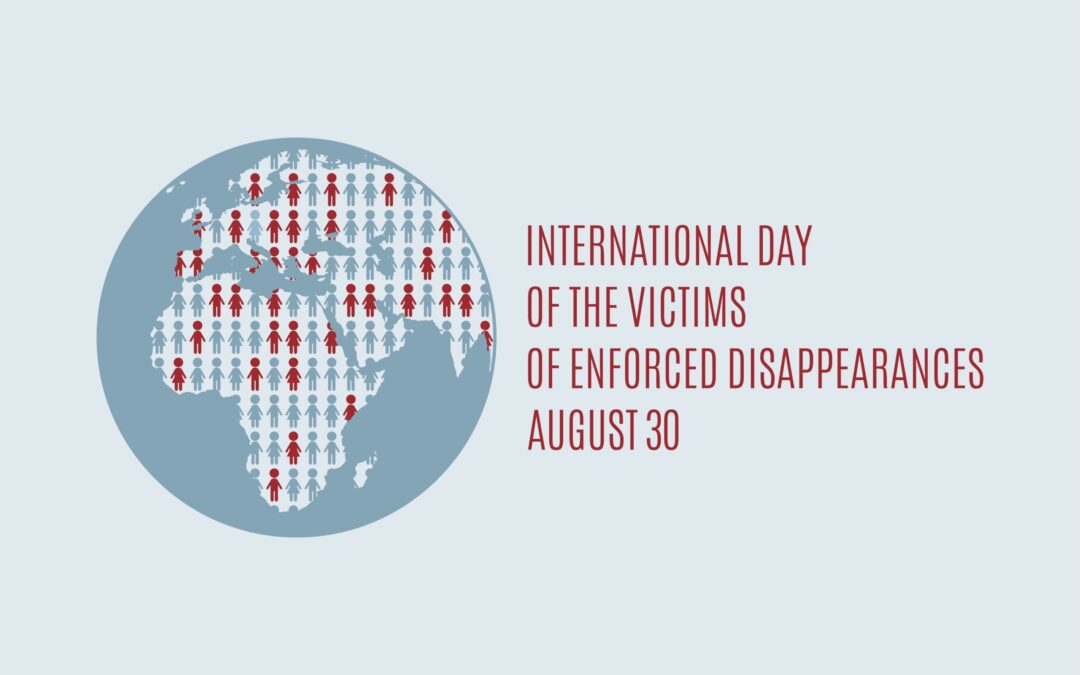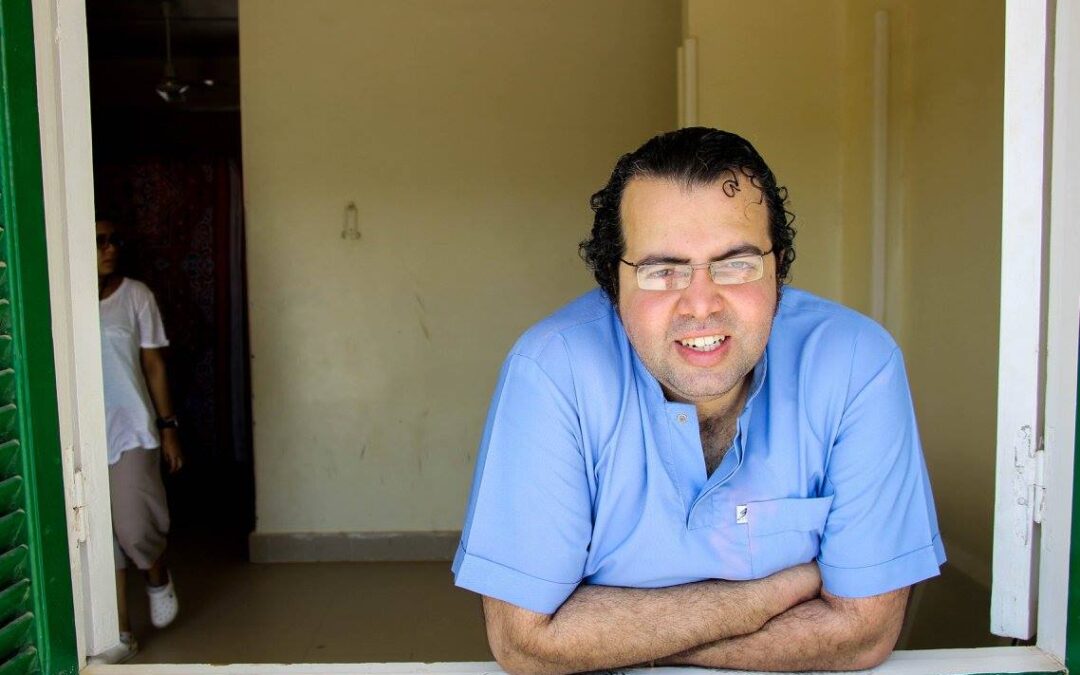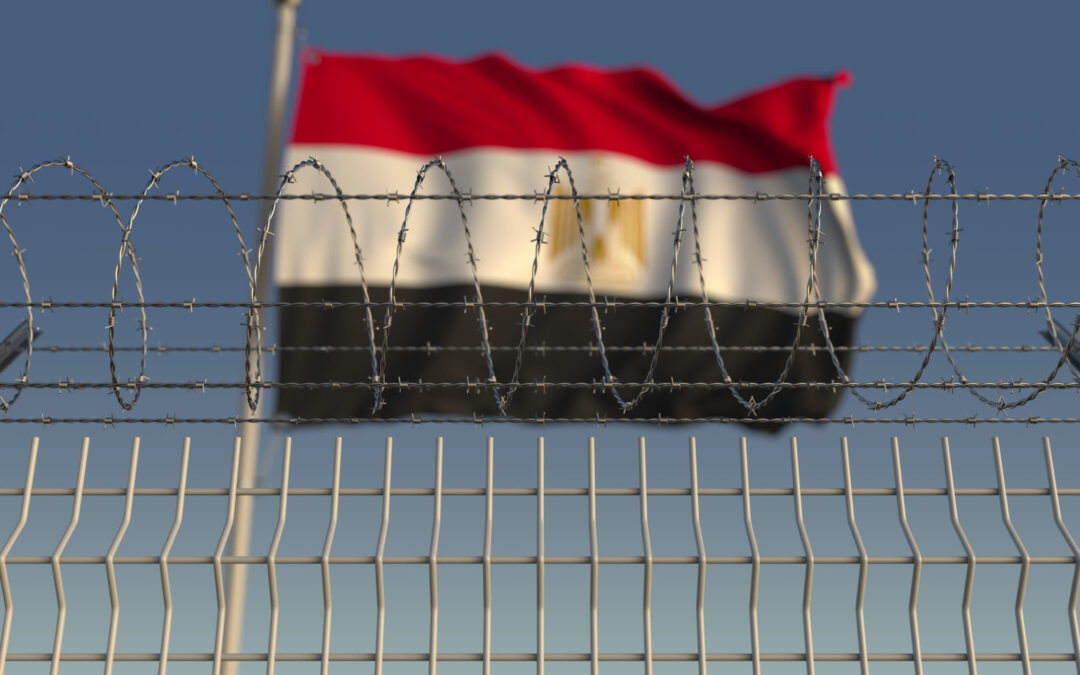
Aug 30, 2021 | News
Today, on the occasion of the International Day of the Victims of Enforced Disappearances, we the 33 undersigned local, regional, and international organizations, associations, and networks come together to highlight the dramatic and persistent nature of enforced disappearances in the Middle East and North Africa (MENA) region and the accompanying impunity enjoyed by perpetrators of these crimes throughout the region.

Jun 25, 2021 | News
The undersigned organizations express their deep concern about the continued disappearance of dentist and former parliamentarian, Mostafa Al-Naggar, on its 1000th day, and call on the Egyptian authorities to immediately disclose any information related to his whereabouts and to reveal his fate.
هذا البيان المشترك متوفر باللغة العربية أيضاً
The former parliamentarian, Mustafa Al-Naggar, a dentist and former head of the Justice Party, travelled to the southern Egyptian governorate of Aswan on September 27, 2018. Since then, his whereabouts and fate remain unknown. According to his wife, the last phone call between her and Mustafa Al-Naggar was on September 28, 2018, when he told her that he was in Aswan, and after that, the communication with him was cut off.
However, on October 10, 2018, his wife received a phone call from an unknown person on her home land line who told her that Al-Naggar had been arrested. Accordingly, on October 12, 2018, the family telegraphed the Public Prosecutor regarding his disappearance, and Mostafa Al-Naggar’s lawyers filed a complaint with the Aswan Prosecution on October 31, bearing the No. 1010 of 2018 Aswan petitions. The State Information Service issued a statement on October 18, 2018, denying that the security services had arrested Al-Naggar.
The Administrative Court of the State Council decided to accept a lawsuit filed by the family of Dr. Al-Naggar to reveal his whereabouts. According to the lawyer of the Egyptian Commission for Rights and Freedoms, the Circle of Rights and Freedoms in the State Council ruled on January 20, 2020 to “stop the implementation of the negative decision and oblige the Minister of Interior to disclose the place of detention of dentist and former parliamentarian Mustafa Al-Naggar” in lawsuit No. 56032/73 J, which was filed by Shaima Ali Afifi, Dr. Al-Naggar’s wife.
The ruling council of the International Parliamentary Union had issued a decision in November 2020 regarding the disappearance of Mustafa Al-Naggar, in which it expressed its concern about the failure of the Egyptian authorities to take any measures towards revealing the fate of the former parliamentarian, and calling on the Ministry of Interior to open an investigation into his disappearance.
During its session held in May 2021, the same Council reiterated its continuing concern about the Egyptian authorities’ unwillingness to disclose Mustafa Al-Naggar’s whereabouts. The same Council renewed its call on the Ministry of Interior to take the investigation into his disappearance seriously, and to take the necessary measures to locate him.
It should be noted that Dr. Al-Naggar suffers from asthma and kidney stones, and depriving him of treatment may put his life at risk. We also note that Mustafa Al-Naggar has taken legal measures to appeal the ruling by the Cairo Criminal Court issued on December 30, 2017, against him and others in absentia, imposing a sentence of three years’ imprisonment following the “insulting the judiciary case” (in case No. 478 of 2014). On 15 October 2015 the court of cassation upheld the prison sentence.
The undersigned organizations call upon the Egyptian authorities to immediately disclose any information related to Mustafa Al-Naggar’s whereabouts and fate, as well as on the Public Prosecution – as the investigative body entrusted with following up and investigating citizens’ complaints – to immediately and urgently investigate the complaints submitted by his family, and on security forces to immediately stop the practice of enforced disappearance against Egyptian citizens, and those who oppose government policies, and immediately disclose the places of detention of the forcibly disappeared.
Signatory organizations
Stop Enforced Disappearance Campaign
Arabic Network for Human Rights Information
Association for Freedom of Thought and Expression
Cairo Institute for Human Rights Studies
Committee for Justice
Egyptian Commission for Rights and Freedoms
Egyptian Front for Human Rights
Egyptian Initiative for Personal Rights
El-Nadim Center
Freedom Initiative
Human Rights Watch (HRW)
International Commission of Jurists (ICJ)
Intersection Association for Rights and Freedoms
Rafto Foundation
World Organisation against Torture (OMCT)
Contact:
Said Benarbia, Director, ICJ Middle East and North Africa Programme, t: +41-22-979-3817; e: said.benarbia(a)icj.org
Asser Khattab, Research and Communications’ Officer, ICJ Middle East and North Africa Programme, e: asser.khattab(a)icj.org

Jun 24, 2021 | News, Uncategorized
Egyptian authorities must immediately quash the convictions of Hanin Hossam and Mawadda Al-Adham and immediately and unconditionally release the two “TikTok girls,” the ICJ said today.
هذا البيان الصحفي متوفر باللغة العربية أيضاً
On 20 June 2021, the Cairo Criminal Court sentenced 20 year-old Hanin Hossam and 23 year-old Mawadda Al-Adham to 10 and six years in prison, respectively, and a fine of 200.000 Egyptian pounds each (12,778 US Dollars), after convicting them on “human trafficking” charges arising from their social media activities.
“Their convictions must be quashed and Hanin Hossam and Mawadda Al-Adham and others imprisoned must be immediately and unconditionally released,” said Said Benarbia, ICJ’s Middle East and North Africa Director.
“The role of the judiciary is to protect and uphold everyone’s right to freedom of expression, not to crack down on its legitimate exercise in the name of some purported and ill-defined moral or social values.”
The two women, known as the “TikTok girls”, were arrested in April 2020 for violating “public morals” and “undermining family values” after publishing videos, including some in which they were shown dancing or signing, on the social media platform TikTok. In July 2020, a Cairo Court convicted and sentenced Hossam and Al-Adham to two years in prison; their conviction was overturned on appeal in January 2021.
However, prosecutors moved swiftly soon after their successful appeal to charge them in another case with “human trafficking”, and “using girls in acts contrary to the principles and values of Egyptian society with the aim of gaining material benefits.” The sentences imposed on 20 June by the Cairo Criminal Court on Hossam and Al-Adham arise from their conviction on those charges.
The charges are based on the 2018 cyber-crimes law, which effectively criminalizes the lawful and legitimate exercise of the right to freedom of expression and association.
“Egypt’s military and government are turning Egypt into an open-air prison in which any and all forms of free expression are crushed,” added Benarbia.
On 12 March 2021, 31 UN Member States delivered a joint declaration at the 46th session of the UN Human Rights Council denouncing the human rights situation in Egypt, including restrictions on freedom of expression.
Contact:
Said Benarbia, Director, ICJ Middle East and North Africa Programme, t: +41-22-979-3817; e: said.benarbia(a)icj.org
Asser Khattab, Research and Communications’ Officer, ICJ Middle East and North Africa Programme, e: asser.khattab(a)icj.org









